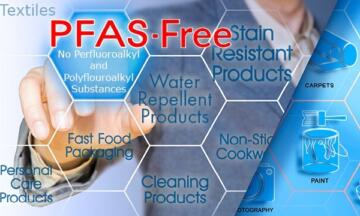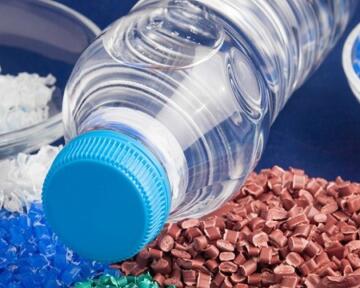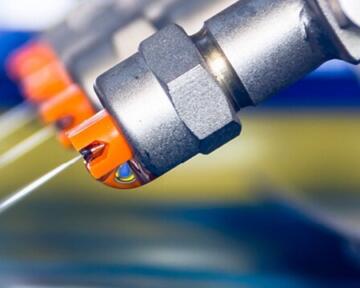The PFAS-FREE project aims to go further by delivering solutions that are not only fluorine-free but also safer, more sustainable, and better performing than what is currently available.
Why PFAS-Free Matters
PFAS (per- and polyfluoroalkyl substances) have long been used in textiles for their exceptional water and stain resistance. However, they come at a high cost: they are persistent, bioaccumulative, and toxic. Linked to serious health risks, including cancer, PFAS compounds accumulate in ecosystems and living organisms over time.
In Europe alone, an estimated 50,000 to 80,000 tonnes of PFAS are used annually in functional textile applications. Despite growing awareness and regulation, viable alternatives remain limited.
PFAS-FREE addresses this urgent need by developing eco-friendly water repellents that do not compromise on performance.
A Collaborative Research Effort
The project brings together leading research institutions: Centexbel, UCLouvain, ULiège, and UGent. Their combined expertise ensures a multidisciplinary approach, merging material science, sustainable chemistry, and environmental assessment.
Centexbel is focusing on the development of hydrophobic bio-based polyurethanes (PU) and non-isocyanate polyurethanes (NIPU). These innovative materials are being applied to common textile substrates such as polyester and cotton to achieve superior water repellency without the use of fluorine.
These materials will be combined with a structured surface developed by UCLouvain, ensuring an innovative approach to achieve durable, water-repellent ensuring an innovative approach to achieve durable water repellent textiles.
From Molecule to Market: Designing for Safety and Sustainability
To ensure the materials and processes are not only effective but also aligned with long-term sustainability goals, ULiège and UGent are conducting an inclusive Safe and Sustainable by Design (SSbD) study, including LCA and ecotoxicity analysis. This framework will guide
- material selection
- processing techniques
- environmental impact assessments
This is done to ensure the final products meet the highest safety and sustainability standards.
Enabling the Circular Economy Through Smarter Textiles
By removing PFAS from textile production and replacing them with bio-based, biodegradable alternatives, PFAS-FREE directly contributes to a more circular economy. The materials under development are designed to have a lower environmental footprint and to support better end-of-life management, such as recycling or safe degradation.
Creating Value for Businesses and Consumers
For textile manufacturers and SMEs, PFAS-FREE opens the door to next-generation product lines that meet tightening regulations and growing consumer demand for safer products. These innovations offer a competitive edge in a market where sustainability is fast becoming a key differentiator.
Whether it's for outdoor gear, technical fabrics, or everyday apparel, the solutions developed by PFAS-FREE promise to deliver water repellence that is both high-performing and future-proof.
A New Standard for Functional Textiles
PFAS-FREE is more than just a research initiative; it's a call to action for the textile industry to innovate responsibly. By combining cutting-edge science with circular economy principles, the project is setting a new benchmark for what sustainable textile performance can look like.
For businesses ready to lead in sustainable innovation, PFAS-FREE provides both the tools and the vision to create textiles that respect people, the planet, and the future.
The FPS Economy is not responsible for the statements relating to the project results. The implementation of the projects remains the responsibility of the winners.




